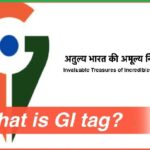Central Vigilance Commission was formed on 11 February 1964 to address governmental corruption. It is an independent autonomous body that reports to the Government of India. Check below GK questions and answers on Central Vigilance Commission which will help you to score well in various competitive examinations.
GK Questions on Central Vigilance Commission
Question: Central Vigilance Commission (CVC) was established in which year?
a 1962
b 1965
c 1964
d 1963
Ans: C 1964
Question: Which of the following is/are true about Central Vigilance Commission:
I. cannot direct CBI to initiate inquires against any officer of the level of joint secretary and above on its own.
II. does not have powers to register criminal case.
III. deals only with vigilance of disciplinary cases.
IV. has supervisory powers over CBI.
V. does not have the power to call for any file. from CBI or to direct CBI to investigate any case in a particular manner.
a I, II
b I. II, III
c I. II, III, IV
d I. II, III, IV, V.
Ans: D I. II, III, IV, V
Question: In which year the Central Vigilance Commission (CVC) was given statutory status?
a 2006
b 2003
c 2001
d 2008
Ans: B 2003
Question: Who have the power to remove the Central Vigilance Commissioner and other Vigilance Commissioner?
a President with recommendation of Home Minister
b and Supreme Court
c Chief Justice of Supreme Court
d None of these
Ans: A President and Supreme Court
Question: The Central Vigilance Commission (CVC) can consist of maximum how many members including the chairman?
a 5
b 4
c 2
d 3
Ans: D 3
Question: Who administers the oath of office to the Central Vigilance Commissioner?
a The President
b Chief Justice of India
c High Court Cheif Justice
d CBI Cheif
Ans: A The President
Question: Who appoints the Central Vigilance Commissioner?
a Supreme Court
b Speaker
c President
d Parliament
Ans: C President
Question: The Central Vigilance Commission has been made a multi member Commission with “statutory status” with effect from
a 25th August 1998
b 15th August 1998
c 25th August 1999
d 25th August 1997
Ans: A 25th August 1998
Question: What is the maximum term of Central Vigilance Commissioner and other vigilance commissioners?
a 5 years
b 3 years
c 2 years
d 4 years
Ans: D 4 years
Question: Which of the following is/are correct about the Central Vigilance Commission (CVC)?
-
It works on the policy of ‘Zero Tolerance Against Corruption’.
-
Central Vigilance Act came into effect in the year 2003 after the CVC bill was passed by both Lok Sabha and Rajya Sabha.











